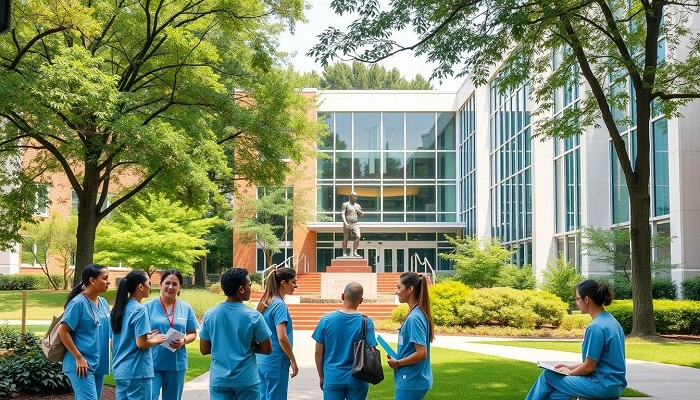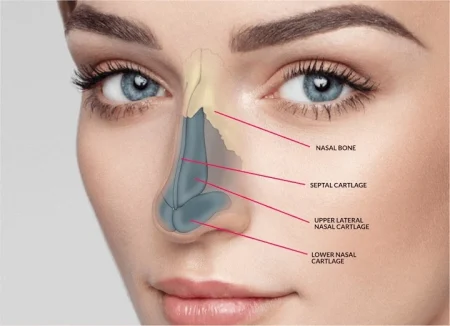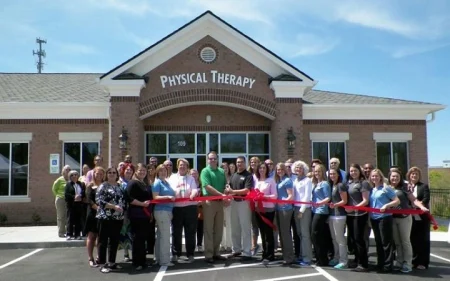Introduction to Wake Forest CRNA Program: Excellence in Nurse Anesthesia Training
The Wake Forest Certified Registered Nurse Anesthetist (CRNA) program is recognized as one of the premier nurse anesthesia educational programs in the United States. Designed to prepare advanced practice nurses for leadership roles in anesthesia delivery, the Wake Forest CRNA program combines rigorous academics, clinical training, and research to develop highly skilled practitioners. This article explores the program’s structure, admission requirements, clinical experiences, career prospects, and why Wake Forest CRNA stands out as a top choice for aspiring nurse anesthetists.
Overview of the Wake Forest CRNA Program

Wake Forest’s CRNA program offers a comprehensive curriculum that blends theoretical knowledge with extensive hands-on clinical practice. The program aims to equip students with the skills necessary to deliver safe and effective anesthesia care across diverse patient populations and settings.
Program Duration and Format
The Wake Forest CRNA program typically spans 36 to 42 months, culminating in a Master of Science in Nursing (MSN) degree. The curriculum includes coursework in anatomy, physiology, pharmacology, pathophysiology, and anesthesia principles, paired with supervised clinical rotations.
Emphasis on Evidence-Based Practice
Students are trained to apply evidence-based practices in anesthesia care, ensuring patient safety and quality outcomes. The program encourages critical thinking, clinical decision-making, and ongoing professional development.
Admission Criteria and Application Process
Wake Forest maintains a competitive admissions process designed to select highly qualified candidates with strong clinical backgrounds and academic excellence.
Eligibility Requirements
Applicants must hold an active registered nurse (RN) license and have at least one year of critical care experience. A Bachelor of Science in Nursing (BSN) or equivalent degree is required, along with a minimum GPA as specified by the program.
Application Components
The application includes submission of transcripts, letters of recommendation, a personal statement, and GRE scores if required. Interviews may also be part of the selection process.
Clinical Training and Experiential Learning
Clinical experience is a cornerstone of the Wake Forest CRNA program, providing students with real-world anesthesia practice under expert supervision.
Diverse Clinical Rotations
Students gain exposure to various clinical settings, including hospitals, surgical centers, and specialized care units. Rotations cover a wide array of anesthesia techniques for surgeries, obstetrics, trauma, and pain management.
Preceptor Mentorship
Experienced CRNAs and anesthesiologists serve as clinical preceptors, guiding students through patient care, procedural skills, and professional conduct.
Career Prospects and Professional Growth

Graduates of the Wake Forest CRNA program are well-prepared to enter a dynamic healthcare field with strong demand and competitive salaries.
Employment Opportunities
Wake Forest CRNAs find employment in hospitals, outpatient surgical centers, pain clinics, military service, and academic institutions. The program’s reputation enhances graduates’ job prospects nationwide.
Leadership and Continuing Education
The program fosters leadership skills, encouraging graduates to engage in advocacy, research, and teaching roles. Many alumni pursue doctoral education or certifications in specialized anesthesia areas.
Unique Features of the Wake Forest CRNA Program
Integration with Wake Forest School of Medicine
The CRNA program’s connection to the Wake Forest School of Medicine provides students access to advanced resources, interdisciplinary collaboration, and cutting-edge research.
Commitment to Diversity and Inclusion
Wake Forest emphasizes fostering a diverse student body and inclusive learning environment, preparing CRNAs to serve varied patient populations effectively.
Simulation and Technology
State-of-the-art simulation labs enhance clinical training by allowing students to practice anesthesia techniques and emergency scenarios in a controlled environment.
Financial Aid and Scholarships
Wake Forest offers various financial assistance options to help students manage tuition and living expenses.
Scholarships and Grants
Qualified applicants may receive scholarships based on academic merit, leadership potential, or financial need.
Loan Programs
Students have access to federal and private loan programs, with financial counseling available to plan repayment.
FAQs About Wake Forest CRNA Program
What is the duration of the Wake Forest CRNA program?
The program typically lasts between 36 to 42 months, including didactic and clinical training.
What clinical experience is required before applying?
Applicants must have at least one year of critical care nursing experience.
Does the program offer online courses?
The program primarily offers in-person courses with some hybrid elements but requires on-site clinical training.
What degrees are awarded upon completion?
Graduates earn a Master of Science in Nursing (MSN) with a focus in nurse anesthesia.
Are there opportunities for research during the program?
Yes, students participate in research projects and are encouraged to contribute to scholarly activities.
Wake Forest CRNA Program—Shaping the Future of Nurse Anesthesia
The Wake Forest CRNA program stands out for its comprehensive curriculum, robust clinical training, and commitment to developing skilled nurse anesthetists ready to meet today’s healthcare challenges. Its integration with Wake Forest’s medical community and emphasis on evidence-based practice prepare graduates for successful careers as anesthesia providers and healthcare leaders. Aspiring CRNAs seeking rigorous education and strong career prospects will find Wake Forest an excellent choice to launch their professional journey.








